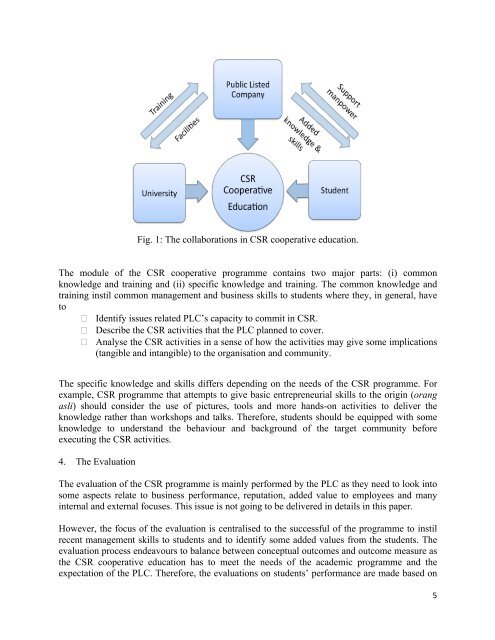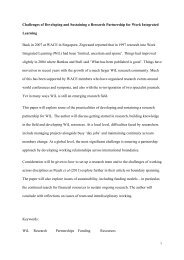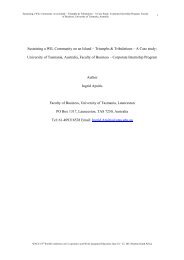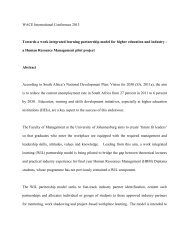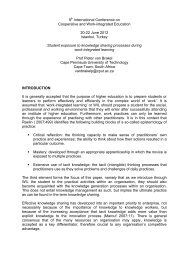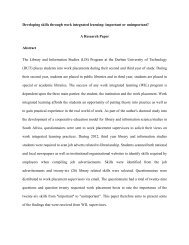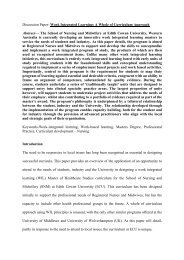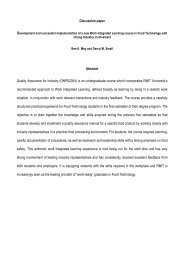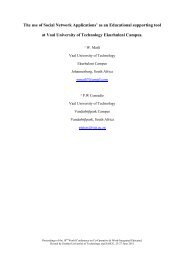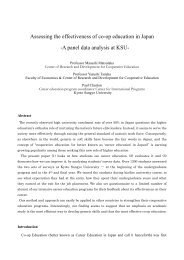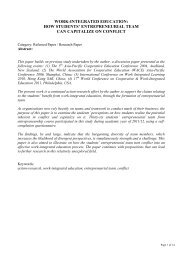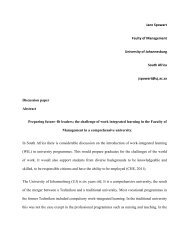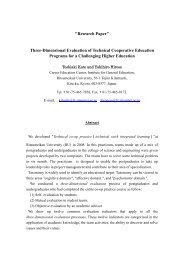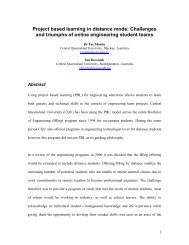Nor Idayu Mahat, Abdul Razak Saleh, Hartini Ahmad ... - WACE
Nor Idayu Mahat, Abdul Razak Saleh, Hartini Ahmad ... - WACE
Nor Idayu Mahat, Abdul Razak Saleh, Hartini Ahmad ... - WACE
You also want an ePaper? Increase the reach of your titles
YUMPU automatically turns print PDFs into web optimized ePapers that Google loves.
Fig. 1: The collaborations in CSR cooperative education.The module of the CSR cooperative programme contains two major parts: (i) commonknowledge and training and (ii) specific knowledge and training. The common knowledge andtraining instil common management and business skills to students where they, in general, havetoIdentify issues related PLC’s capacity to commit in CSR.Describe the CSR activities that the PLC planned to cover.Analyse the CSR activities in a sense of how the activities may give some implications(tangible and intangible) to the organisation and community.The specific knowledge and skills differs depending on the needs of the CSR programme. Forexample, CSR programme that attempts to give basic entrepreneurial skills to the origin (orangasli) should consider the use of pictures, tools and more hands-on activities to deliver theknowledge rather than workshops and talks. Therefore, students should be equipped with someknowledge to understand the behaviour and background of the target community beforeexecuting the CSR activities.4. The EvaluationThe evaluation of the CSR programme is mainly performed by the PLC as they need to look intosome aspects relate to business performance, reputation, added value to employees and manyinternal and external focuses. This issue is not going to be delivered in details in this paper.However, the focus of the evaluation is centralised to the successful of the programme to instilrecent management skills to students and to identify some added values from the students. Theevaluation process endeavours to balance between conceptual outcomes and outcome measure asthe CSR cooperative education has to meet the needs of the academic programme and theexpectation of the PLC. Therefore, the evaluations on students’ performance are made based on5


